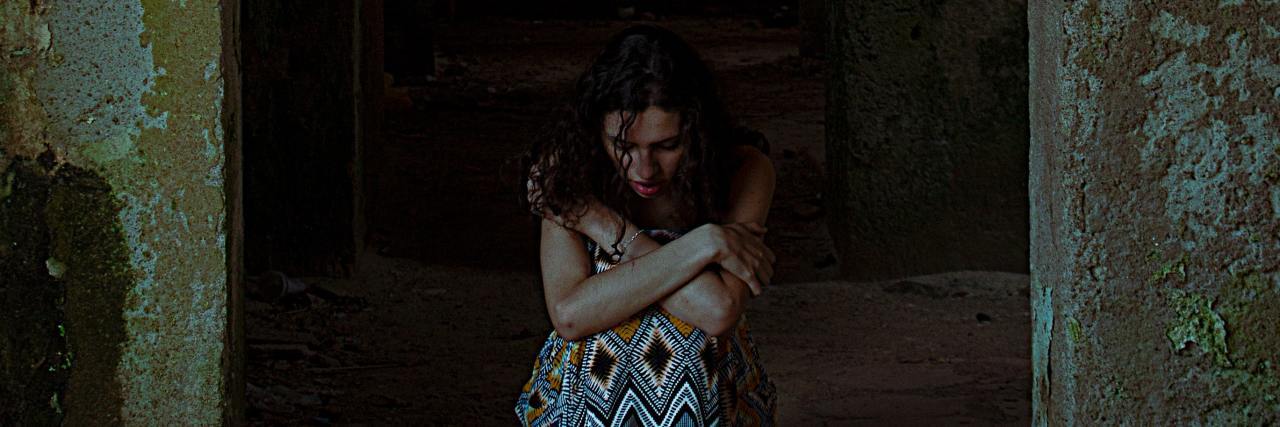When Childhood Emotional Abuse Makes You ‘The Sarcastic One’
Editor's Note
If you experienced emotional abuse or experience suicidal thoughts, the following post could be potentially triggering. You can contact the Crisis Text Line by texting “START” to 741741.
Humor can be a great way to diffuse tension when your anxiety starts to get the better of you in an uncomfortable social situation. It can also, however, be a way to keep people from getting to know the “real” you — a way to build walls to keep people from getting too close.
For as long as I can remember, I have been known as “the sarcastic one” or “the class clown,” as I always have a snappy comeback ready for the next person I come across. When I’m in a group setting, I can feel pressure to perform and “be funny,” because I feel that’s what the people around me have come to expect. The problem is, while they might laugh at the things I say or do, they don’t really know “me.” They think I’m a hard-nosed, tough person with the emotional depth of a cyborg; in reality, I’m likely one of the most sensitive people they will meet, the type of person who not only feels all of my pain but who also feels the pain and troubles of those around me, and who genuinely wants to offer help.
Why don’t I let people see the softer side of me?
Fear, plain and simple.
I use humor to deflect and defend. When I was a kid, any time I would cry or show feelings of anxiousness or hurt, I was brutally made fun of by my family. And I’m not talking about same-aged cousins, but the adults in our family. I was told, “You can’t really be related to any of us — you’re just a big baby!”
I was rejected by the very people who were supposed to love and care for me, no matter what. I was too emotional, too loud, too rambunctious, too excitable — basically, I was too much. I was a child, so I naturally internalized this message, feeling I was responsible for the problem instead of understanding my family was abusive and dysfunctional, and the rejection wasn’t about the person I was, but rather the person they were unable to be.
All I knew was that people who get too close were bound to hurt and reject me because I wasn’t good enough. So, I adopted a new way of dealing with people — be sarcastic and keep everyone at arm’s length. This allowed me to deal with my anxiety in uncomfortable social situations (and with my anxiety, every social situation is uncomfortable), and it allowed me to pretend I was insulated from hurt, rejection and judgment.
Here’s the deal, though — that behavior also keeps me walled in. Isolated. Wanting to die. Feeling I could drop dead tomorrow, and no one would care or even notice (well, no one besides my kids). I sometimes feel like I am standing in the middle of a crowd screaming, just needing someone to notice I am hurting — but they never do. I never allow them to.
I have had people — a select few who actually have gotten to know me a bit more than most — say they can almost visibly see a wall come up if they start to get too close, if the conversation gets a little too real. Even my absolute closest friends say I hold back, and that it makes it hard to trust I’m being honest about how I’m feeling, or what I’m thinking because I’m too afraid to actually tell them. Instead, I divert and deflect with a witty comment, a touch of sarcasm or an inappropriate joke. I even do this when someone offers a genuine compliment because I can’t see the good in me that they might see. This makes authentic friendships and relationships nearly impossible. And that makes life unbearably lonely. When life gets that lonely, I get incredibly overwhelmed. And when I am overwhelmed and lonely, that’s when I can find myself spiraling into thoughts of suicide.
It’s dangerous to cut ourselves off from other people, from connection. So, if you are doing something similar, how do you fix it? How do you change your thought and behavior patterns to allow people to see the real you, and to trust that you can be loved and liked for the person you really are?
I wish I had brilliant words of advice for that, but I am still learning. I am practicing saying, “Thank you,” when someone offers a kind word or compliment. I am fighting my natural instinct when a friend asks, “How are you doing?” Instead of making a joke, I am allowing myself an honest: “I’m not OK today.” I am reaching out, asking friends to go out for coffee or to hang out, so I can hear about how they are doing and who they really are, helping me to build trust in the friendship so that I don’t fear judgment and rejection so much.
These are small steps. And they won’t work with everyone — some people just aren’t necessarily meant to be a close friend to you. But these small steps are the best I have for now, with the hope I will let go of some of my fear, sarcasm, trust issues and walls — because we can’t do life alone, no matter how strong and independent we think we are. It’s lonely, isolating and I’m afraid of what might happen if I don’t fight to change these patterns.
Photo by Robson Dobler from Pexels

